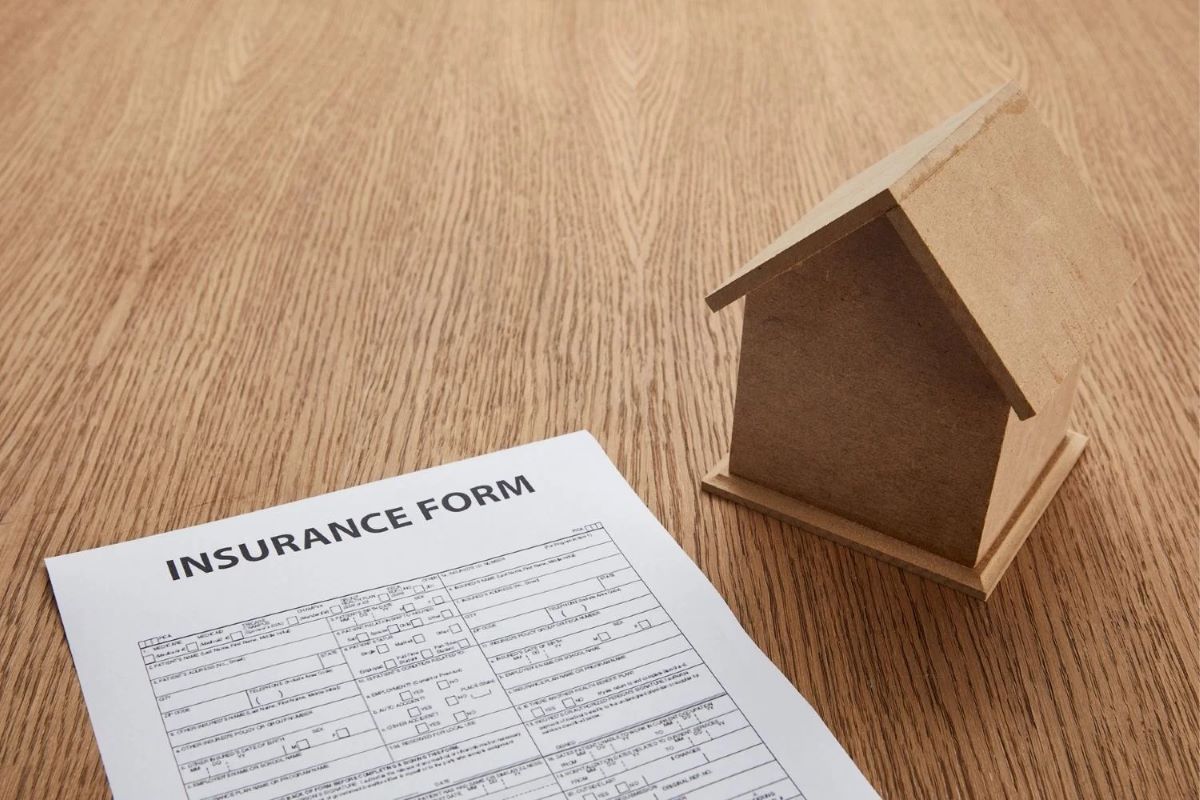Home>Finance>How Does Renters Insurance Protect The Landlord


Finance
How Does Renters Insurance Protect The Landlord
Published: November 22, 2023
Learn how renters insurance can provide financial protection for landlords in case of damages or liabilities caused by tenants. Discover the benefits of landlord insurance today!
(Many of the links in this article redirect to a specific reviewed product. Your purchase of these products through affiliate links helps to generate commission for LiveWell, at no extra cost. Learn more)
Table of Contents
Introduction
When it comes to renting a property, both tenants and landlords have concerns about protecting their investments. While tenants might focus on safeguarding their personal belongings, landlords are primarily concerned with protecting their property and mitigating potential risks. This is where renters insurance comes into play.
Renters insurance is a type of insurance coverage specifically designed for tenants who rent a property. It provides financial protection for tenants in case their personal belongings are stolen, damaged, or destroyed due to events like fire, theft, vandalism, or natural disasters. However, what many landlords might not realize is that renters insurance can also provide indirect protection for them.
In this article, we will explore how renters insurance can safeguard landlords’ interests and property investments. We will dive into the different types of coverage offered by renters insurance and examine the benefits it provides to both tenants and landlords. By understanding the role of renters insurance, landlords can make informed decisions and mitigate potential risks associated with renting out their properties.
Understanding Renters Insurance
Renters insurance is a type of insurance coverage that renters purchase to protect their personal belongings and provide liability coverage for accidents that may occur in the rented property. It is important for both tenants and landlords to have a clear understanding of how renters insurance works and the benefits it offers.
Typically, renters insurance policies cover three main areas: personal belongings coverage, liability coverage, and additional living expenses coverage.
Personal Belongings Coverage: This is the core component of renters insurance. It provides financial protection for tenants’ personal belongings against covered perils, such as theft, fire, or water damage. From furniture and electronics to clothing and jewelry, tenants can rest easy knowing that their possessions are covered up to the policy’s specified limits.
Liability Coverage: Renters insurance also includes liability coverage, which protects tenants in the event that they are held responsible for bodily injury or property damage to others. For example, if a visitor slips and falls in the rented property and sues the tenant, the liability coverage will help cover legal fees and potential settlement costs.
Additional Living Expenses Coverage: In the unfortunate event that tenants are unable to occupy their rented property due to a covered loss, renters insurance provides coverage for additional living expenses. This means that the insurance policy will help pay for temporary accommodation, meals, and other necessary expenses while the rented property is being repaired or restored.
It’s important to note that renters insurance typically does not cover damage to the physical structure of the property itself. That responsibility falls under the landlord’s insurance policy, known as a landlord insurance or dwelling insurance policy.
It’s crucial for tenants to understand the terms and conditions of their renters insurance policy, including the coverage limits, deductibles, and any exclusions that may apply. Likewise, landlords should encourage their tenants to obtain renters insurance as a means of protecting their personal belongings and minimizing potential liability risks.
By promoting renters insurance, landlords can ensure that their tenants are well-equipped to handle unforeseen circumstances, reducing the risk of financial strain on both parties involved.
Coverage for Personal Belongings
One of the primary benefits of renters insurance is coverage for personal belongings. Tenants invest in their personal possessions, such as furniture, electronics, clothing, and appliances, and it’s important to protect these items from unexpected events like theft, fire, or water damage.
Renters insurance provides coverage for personal belongings up to a specified limit outlined in the policy. The coverage extends to a wide range of items, including but not limited to:
- Furniture
- Electronics
- Appliances
- Clothing
- Jewelry
- Artwork
- Collectibles
- Sports equipment
In the event of a covered loss, such as a fire or theft, the insurance policy will reimburse the tenant for the replacement or repair cost of the damaged or stolen items. This coverage provides peace of mind and financial protection for tenants, allowing them to recover from unexpected challenges without bearing the full financial burden.
It’s important for tenants to have an accurate understanding of the value of their personal belongings to ensure they have sufficient coverage in their renters insurance policy. Conducting a thorough home inventory is a helpful way to document and estimate the value of possessions. This inventory can include photographs or videos of each item, along with receipts or appraisals where applicable.
Landlords can also benefit from tenants having coverage for personal belongings. When renters have insurance, they are less likely to hold the landlord accountable for damages or losses they incur. Instead, tenants can file a claim with their insurance company and receive compensation for the items that were damaged or stolen.
By encouraging tenants to obtain renters insurance, landlords can protect themselves and their interests. In the event of a covered loss, landlords can focus on repairing or restoring the property, while tenants can rely on their insurance to address their personal belongings.
It’s important to note that while renters insurance covers personal belongings, there may be limitations and exclusions for certain high-value items like jewelry or artwork. Tenants should review their policy and consider obtaining additional coverage or scheduling specific items if necessary.
Overall, coverage for personal belongings offered by renters insurance provides tenants with peace of mind and financial protection, while also indirectly safeguarding the interests of landlords.
Liability Coverage
Renters insurance not only protects tenants’ personal belongings but also includes liability coverage. Liability coverage offers financial protection in case the tenant is found legally responsible for causing bodily injury or property damage to others.
Accidents happen, and if a visitor or guest is injured while on the rented property, the tenant could potentially be held liable for medical expenses, legal fees, and even potential settlements. For example, if a guest slips and falls in the rented apartment and sustains injuries, they may choose to sue the tenant for negligence.
Liability coverage within a renters insurance policy helps to cover these expenses. It provides compensation for medical bills, legal fees, and even court-awarded damages to the injured party. This coverage acts as a safety net for tenants, protecting their personal finances from unexpected and potentially costly lawsuits.
Landlords can benefit from tenants having liability coverage as well. If an accident occurs on the rented property and the tenant is held liable, the injured party may choose to sue the landlord as well. However, if the tenant has renters insurance with liability coverage, they can seek compensation through their insurance policy instead of involving the landlord directly.
By encouraging tenants to obtain renters insurance with liability coverage, landlords reduce their own potential liability risks. This is especially important in situations where the tenant may be at fault for the accident due to negligence or unsafe conditions in the rental property.
It’s important to note that liability coverage has limits, and the policy will specify the maximum amount the insurance company will pay in the event of a claim. Tenants should review their policy to ensure they have adequate coverage limits to protect their assets and financial well-being.
Having liability coverage in renters insurance not only protects tenants from financial setbacks but also offers indirect protection for landlords. By encouraging tenants to have liability coverage, landlords can mitigate potential liability risks and focus on the smooth functioning of their rental properties.
Additional Living Expenses Coverage
One of the often overlooked but essential components of renters insurance is coverage for additional living expenses (ALE). ALE coverage provides financial protection for tenants who are temporarily displaced from their rented property due to a covered loss.
In the unfortunate event of a fire, severe water damage, or any other covered loss that renders the rented property uninhabitable, tenants may need to find alternative living arrangements. This can involve expenses such as hotel stays, temporary rentals, meals, and transportation costs. ALE coverage within the renters insurance policy helps to offset these additional living expenses.
If tenants have to temporarily relocate due to a covered loss, their insurance company will cover the reasonable and necessary costs associated with their temporary living arrangements. This coverage helps to ensure that tenants can maintain a similar standard of living while their rented property is being repaired or restored.
Having ALE coverage not only benefits tenants but also indirectly benefits landlords. When tenants have the means to secure temporary accommodation, it reduces the likelihood of them seeking alternative housing options at the landlord’s expense. This coverage provides peace of mind to both parties, as tenants can focus on finding suitable temporary housing while landlords can focus on making the necessary repairs to the rental property.
It’s important for tenants to review the details of their renters insurance policy and understand the specific limits and conditions of the ALE coverage. The insurance company typically sets a maximum dollar amount or time limit for these additional living expenses, so tenants should ensure that they have sufficient coverage.
Additionally, tenants should keep detailed records of all expenses related to their temporary living arrangements, including receipts and invoices, to facilitate the claim process with their insurance company. This documentation will help ensure a smooth reimbursement of their ALE expenses.
Overall, ALE coverage in renters insurance serves as a safety net for tenants during times of displacement from their rented property. It provides financial protection for additional living expenses and indirectly benefits landlords by ensuring tenants can secure temporary housing without imposing additional financial burdens on them.
Protection against Lawsuits
Another crucial benefit of renters insurance is the protection it offers against lawsuits. Accidents can happen, and tenants may find themselves facing legal action if they are held responsible for causing bodily injury or property damage to others.
Renters insurance includes liability coverage, which extends to legal defense expenses if a tenant is sued. In the event that a tenant is found liable for an accident or incident that occurred on the rented property, the insurance company will provide financial support for legal representation and cover any settlement or judgment costs, up to the policy’s specified limits.
For example, if a guest is injured while visiting the tenant’s rented property and decides to file a lawsuit, the tenant’s renters insurance can help cover the legal fees associated with defending against the claim. This can include lawyer fees, court fees, and other related expenses.
Landlords can benefit from their tenants having renters insurance that includes liability coverage. If an accident occurs on the rented property and legal action is taken, the tenant’s insurance coverage can potentially prevent the lawsuit from directly involving the landlord. This helps protect the landlord’s reputation and financial stability.
Encouraging tenants to obtain renters insurance with liability coverage can reduce the likelihood of lawsuits being directed at the landlord. By shifting the responsibility to the tenant’s insurance, landlords can focus on their property management responsibilities without the added stress and financial burden of legal disputes.
It’s important for tenants to carefully review the terms and conditions of their renters insurance policy regarding liability coverage. They should understand the coverage limits and any exclusions that may apply. Tenants should also communicate with their insurance provider promptly if a lawsuit is filed against them to ensure proper legal representation and assistance.
Ultimately, renters insurance with liability coverage acts as a safeguard for tenants and indirectly protects landlords from the financial and legal repercussions of unexpected accidents or incidents. By mitigating the risks associated with lawsuits, renters insurance offers a valuable layer of protection for both parties involved in the rental agreement.
Indirect Protection for Landlords
While the primary purpose of renters insurance is to provide financial protection for tenants, it also offers indirect benefits and protection for landlords. By encouraging tenants to obtain renters insurance, landlords can mitigate potential risks and safeguard their property investments.
1. Reduced Liability Risks: When tenants have renters insurance with liability coverage, they are more likely to handle potential accidents or incidents on their own. In the event that a guest is injured or property is damaged, the tenant’s insurance company can be responsible for handling any resulting claims or lawsuits. This reduces the likelihood of the injured party seeking compensation directly from the landlord, alleviating potential liability risks for the property owner.
2. Financial Stability for Tenants: Renters insurance provides financial protection for tenants in case of covered losses, such as theft, fire, or natural disasters. When tenants have insurance coverage for their personal belongings, they are better equipped to handle unexpected challenges without relying on the landlord for financial assistance. This promotes a sense of financial stability and reduces the likelihood of tenants seeking rent reductions or other concessions due to unforeseen circumstances.
3. Promotes Responsible Tenancy: Renters insurance is a valuable tool in promoting responsible tenancy. Tenants who understand the importance of protecting their personal belongings and liability risks are more likely to take better care of the rented property. They are motivated to maintain a safe and secure living environment, which can lead to fewer incidents, damages, and disputes that landlords would otherwise have to address.
4. Streamlined Claims Process: In the event of a covered loss, tenants with renters insurance can file a claim with their insurance company. This ensures a more streamlined claims process, as the insurance company will handle the majority of the documentation and reimbursement. As a result, landlords can focus on resolving any property-related issues, such as repairs or maintenance, while tenants use their insurance coverage to address their personal belongings.
5. Peace of Mind: Renters insurance provides peace of mind for both tenants and landlords. Tenants can feel secure knowing that their personal belongings are protected, while landlords can be confident that their tenants have the means to handle unforeseen circumstances that may arise during the rental period. This peace of mind fosters a positive landlord-tenant relationship and enhances the overall rental experience for all parties involved.
It’s important for landlords to communicate the benefits of renters insurance to their tenants. By encouraging and educating tenants about the importance of obtaining renters insurance, landlords can not only protect their own interests but also promote a responsible and secure living environment.
Conclusion
Renters insurance offers valuable protection for tenants and indirectly safeguards the interests of landlords. By understanding the different components of renters insurance, both tenants and landlords can make informed decisions and mitigate potential risks.
Renters insurance provides coverage for personal belongings, protecting tenants’ investments in their possessions. This coverage extends to a wide range of items and provides financial reimbursement for damages or losses caused by covered perils such as theft or fire.
Liability coverage is another important aspect of renters insurance. It protects tenants in case they are held responsible for causing bodily injury or property damage to others. This coverage not only offers financial protection for tenants but also indirectly protects landlords from potential legal disputes and liability risks.
Additionallly, renters insurance includes coverage for additional living expenses. This coverage assists tenants in securing temporary accommodation and covers associated expenses if they are displaced from their rented property due to a covered loss. This ensures that tenants can maintain a similar standard of living while the property is being repaired or restored.
Renters insurance also protects tenants from lawsuits by providing legal defense in case they are sued. This coverage helps offset legal expenses and potential settlement costs, reducing the likelihood of lawsuits being directed at landlords and promoting a more harmonious landlord-tenant relationship.
Ultimately, renters insurance offers peace of mind and financial stability for both tenants and landlords. By promoting and encouraging tenants to obtain renters insurance, landlords can mitigate potential risks, reduce liability concerns, and foster a responsible and secure rental environment.
To fully understand the coverage and benefits of renters insurance, tenants should carefully review their insurance policies and consult with insurance professionals to ensure they have adequate protection. Landlords should also make renters insurance a requirement in their lease agreements to protect their investment and minimize potential risks.
By recognizing the importance of renters insurance and working together, tenants and landlords can create a positive rental experience that prioritizes protection, security, and peace of mind for everyone involved.














